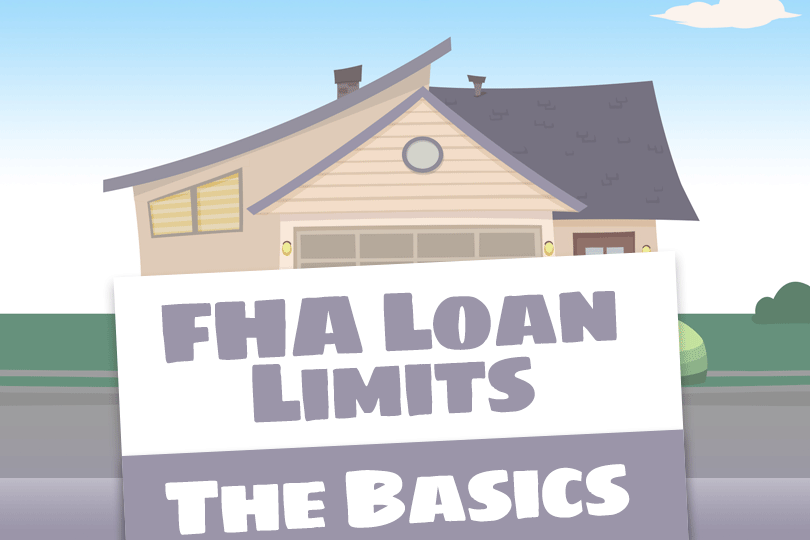FHA Loan Limits: What to Know

But is it a good idea to do so even if you financially qualify to borrow up to that amount? And will you be allowed to do so? We address these questions below.
What to Know About FHA Loan Limits
FHA loan limits are not identical for all counties or housing markets. There is a maximum loan amount for high-cost counties and a maximum for “typical” areas.
FHA loan limits have a “ceiling” for high-cost housing markets and a “floor” for the least expensive markets. Your loan limit may vary depending on where you want to buy.
That’s the obvious part. What’s not so obvious to a first-time homebuyer?
The fact that FHA loan limits are calculated without consideration of addons to the loan like an FHA Energy Efficient Mortgage or your closing costs such as the Up Front Mortgage Insurance Premium.
You can finance those without worry that doing so will reduce how much you can borrow for the purchase of the home itself. You won’t hit the FHA loan limit by adding those closing costs to the mortgage.
Borrowing the Maximum
Some borrowers want to borrow the entire FHA loan limit even if the sale price and addition of closing costs don’t hit the limit. In cases where there is more to pay than the loan will cover, such as when the home does not appraise for the sale price, the borrower has the option to pay the difference in cash.
The reverse is not true. You cannot buy a home with a loan that is more than the total amount of the transaction and expect to take the remainder in cash like you would a cash-out refinance. Don’t expect to take cash away at closing on an FHA loan except when you are due a refund.
How Much Should You Borrow With an FHA Mortgage Loan?
Some sources, such as Investopedia, advise not automatically applying for the maximum FHA loan limit amount but by looking carefully at gross income and choosing a percentage of that instead.
The idea here is to review your finances and make a realistic loan amount decision for your budget. Knowing how much you can borrow in the planning stages is a huge help.
You’ll want to eliminate house-hunting options above your budget based on the amount you decide to borrow. How to set that budget? Time Magazine has this advice:
“The most common rule for housing payments states that you shouldn't spend more than 28% of your gross income on your housing payment, and this should account for every element of your home loan (e.g., principal, interest, taxes, and insurance).”
Set your house-hunting budget based on that advice, and you will get a lot closer to knowing how much you should be considering for your home loan based on realistic expectations. Guessing isn’t a good strategy for buying a home, but doing the math described above is.
------------------------------
RELATED VIDEOS:
Sometimes It Pays to Refinance
Don't Forget Your Closing Checklist
Your Home Loan is Called a Mortgage

Do you know what's on your credit report?
Learn what your score means.







